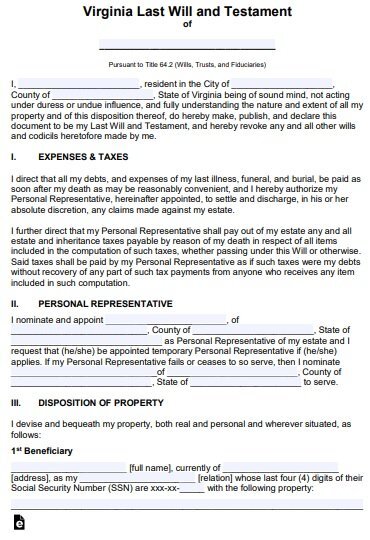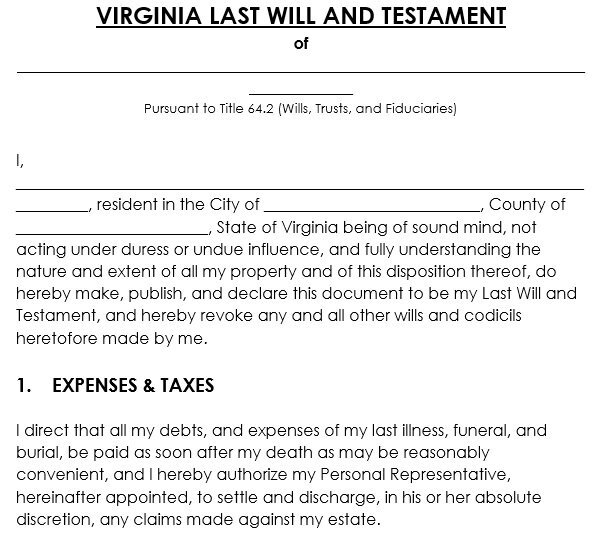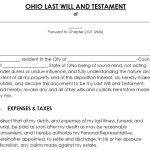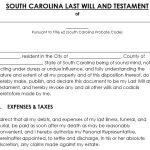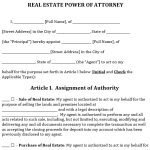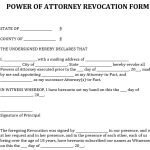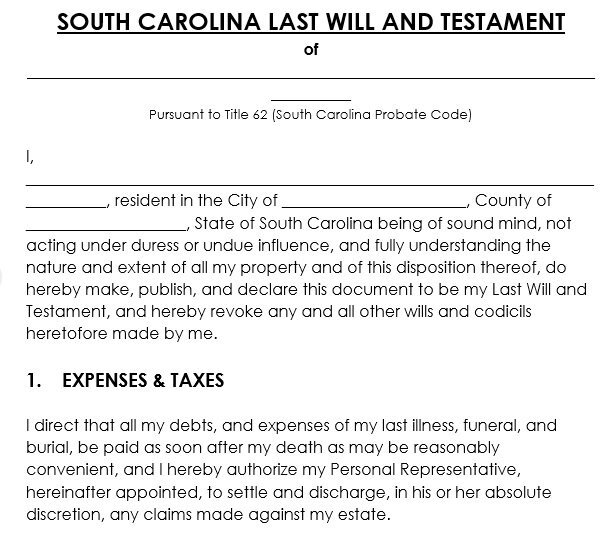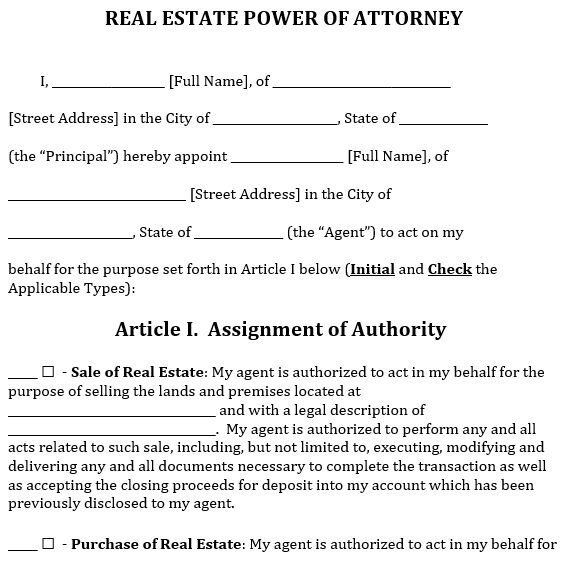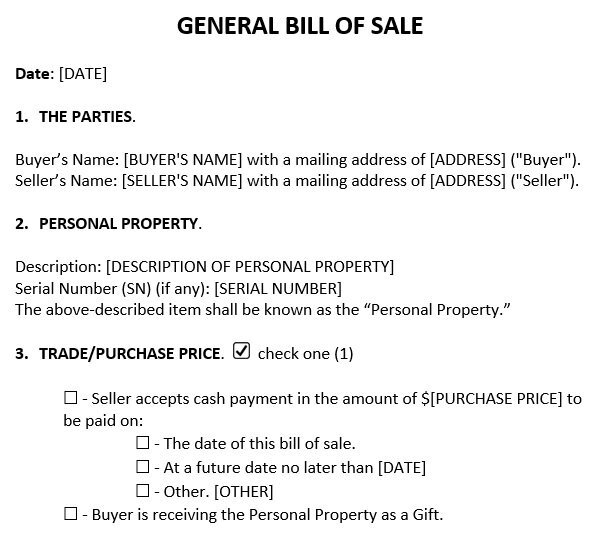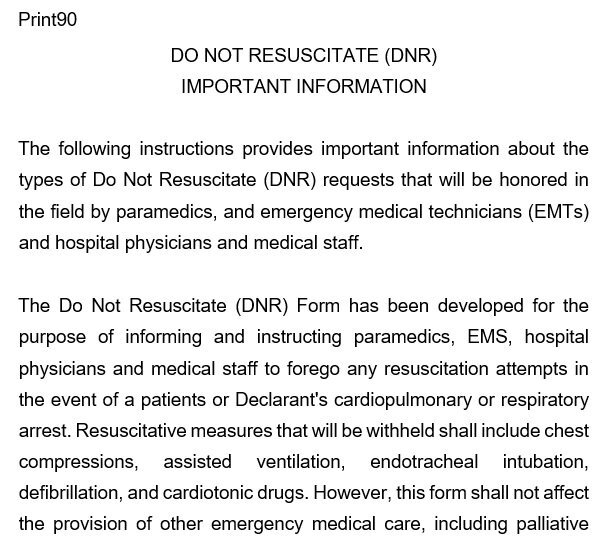In the US, a person’s last will and testament is the archive made by the person who frames who they need to acquire their bequest after their death. The individual composing the will is known as the “testator.” In the event that an individual is something like 18 years of age and has the intellectual ability to execute a record, they can compose a last will and testament. The last will and testament in Virginia lay out how the testator’s property is divided after they die. A will should be appropriately executed as per Virginia state regulation to be viewed as substantial. Wills in Virginia are utilized as estate planning archives. Any postscript or alteration that the testator or someone else adds at the testator’s solicitation ought to likewise be followed while executing the will.
The main pieces of a will are the testator’s expectations concerning who ought to acquire the estate and how the property is to be partitioned. The effective execution of a will requires complying with state regulations.
For what reason Do You want a Last Will and Testament in Virginia
It isn’t compulsory for the occupants of Virginia to triumph ultimately through a last will and confirmation. In any case, making a last will and testament for your Virginia property guarantees that your resources are circulated according to your desires. This dodges the probate process and intestacy rules, which can be tedious and exorbitant for the beneficiaries.
The primary legitimization for making a will in Virginia is to guarantee that your desires, not those of the court, are followed while partitioning your estate. Intestacy regulations depend on standard legacy decisions that regularly struggle with your wishes. A last will and testament can assist with forestalling this. A last will and testament safeguard enduring relatives who might have worries about the circulation of property abandoned.
A Virginia last will and testament likewise permits you to name a guardian for any minor kids you might abandon. Moreover, you can delegate a supervisor of your estate to follow up for the minor’s sake since minors can’t oversee domains until they are 18 years of age. A Virginia last will and testament can likewise be utilized to make a pet trust for your pet(s).
In Virginia, through a will, you can likewise name an agent, who is a party selected to guarantee the last will and testament is trailed behind your passing. This implies the court doesn’t need to direct the distribution process as long as the last will and testament are legitimately enforceable.
If a will isn’t made, your property would be dependent upon intestacy regulations, which are regulations that make the state responsible for the circulation of the estate of the departed. This can bring about the property being appropriated to undeserving beneficiaries or against your desires. Virginia’s intestacy regulations disseminate property in the accompanying request of need: direct relations (life partner and kids, guardians, grand-kids, kin), then, at that point, far-off family members (grandparents, aunties, uncles, cousins, nieces and nephews, etc). The regulations expect to find the nearest living family members until the rundown is depleted. If none is found, the property is given to the state. The whole intestacy process can be expensive for the recipients and can require a very long time because of an extensive lawful interaction.
The most effective method to Make a Last Will and Testament in Virginia
States regularly classify their regulations concerning wills in their constitutions or general resolutions, characterizing what is a legitimate will and giving the principles for executing a will. The accompanying advances can be followed to make legally legitimate wills in Virginia:
Stage 1: Check eligibility
The initial step is really to take a look at whether the property to be placed in the will is qualified for legacy. Non-probate resources are property that passes to recipients without a probate interaction. Property held in joint tenure passes to the next joint occupant upon death and isn’t likely to go through probate in that frame of mind, according to state regulation. Different resources, for example, extra security approaches, annuity plans, checks, and comparable instruments, can be remembered for the will. You, as the testator, should likewise be no less than 18 years of age and sound mind to be qualified to compose the last will and testament in Virginia.
Stage 2: Talk with state laws
Whenever it has been learned that the property is qualified, it is important to talk with the state laws, as they will provide clarity regarding how the things can be circulated. As per Virginia state law, a testament should follow specific conventions to be lawfully enforceable. A will is characterized as “any testament, supplement, the activity of a force of arrangement by a will or writing in the idea of a will or some other testamentary demeanour.” under Virginia regulations (§ 64.2-100).
Stage 3: Take a look at all guidelines and necessities
States commonly have classified their regulations concerning wills in their constitutions or general resolutions, which characterize a substantial will and give the guidelines for executing a will. These prerequisites frequently include observers, seals, and different conventions as expected by neighbourhood regulations. Virginia Code § 64.2-401 oversees your qualification concerning maturity and limit. Virginia Code § 64.2-401 states that a will in Virginia ought to address any property you possessed at the hour of composing the will. Virginia state regulations specify that the will ought to be in printed version and not in any of the accompanying configurations: sound, video, or computerized document. As indicated by Virginia Code § 64.2-403, it tends to be transcribed although it isn’t supported.
For the most part, under Virginia Code § 64.2-403, a will ought to be marked and dated by you, and something like two witnesses ought to observe the will. The marking ought to be finished with all signatories present. Virginia Code § 64.2-405 states that “intrigued” parties — people who expect to acquire a piece of the property — can be observers. Notwithstanding, it is in every case best to have all witnesses be “unbiased” parties. Holographic wills are allowed under Virginia Code § 64.2-403 and don’t need to be seen. In any case, somewhere around two individuals should verify that the will and the mark are genuine.
Stage 4: Self-demonstrate your will
Even though it isn’t needed, self-demonstrating is the last step under the watchful eye of the court acknowledging and implementing the will as an authority archive. As per Virginia Code Virginia Code § 64.2-452, self-demonstrating a will is finished by visiting a legal official public to have your oath of affirmation taken. You want to assert after swearing to tell the truth that you are the genuine proprietor of all property that is named in your will and that you have made your will unit to be legitimate under state regulations.
Virginia Last Will and Testament Repudiation System
The strategy for voiding a will is called revocation. This should be possible for various reasons, for example, the property was not qualified to be remembered for the will, the will was inappropriately executed, or other ill-advised arrangements were made inside. It is feasible to repudiate a current will or addition by destroying it, removing it, dropping it, lighting it ablaze, decimating it, or in any case, obliterating it under Virginia Code § 64.2-410.
Any clause in your last will and testament that consequently transfers property to your spouse or names them as your agent in Virginia is disavowed by the state of Virginia upon your separation or cancellation of your marriage. This is the case provided that the will explicitly expresses that its arrangements are not to be impacted by separation or dissolution. Nevertheless, this expectation of Virginia laws doesn’t matter if you remarry your companion under Virginia Code § 64.2-412.
Free Forms
You can use templates to make last wills and testaments in Virginia. By utilizing legitimate legal language and framing the crucial components of a substantial last will and testament, templates ensure the will consents to every one of the state’s prerequisites. This recovers your time and exertion and facilitates the will-composing process. You can download such layouts from our website for free. The templates are expertly planned, adaptable to your determinations, and reusable when new last wills and testaments are required.
free Virginia last will and testament template
printable Virginia last will and testament template
Conclusion
A last will and testament likewise called a “last will,” is an authoritative report portraying how a singular person wishes for their property to be conveyed after they bite the dust. Estates can involve land, individual property, and protection advantages, and the sky is the limit from there. The testator might assign recipients of their estate during their lifetime, whether they are close family members (like youngsters, kin, guardians, or adopted kids) or not (like collaborators or altruistic associations).
FAQS (Frequently Asked Questions)
No, you don’t need a legal counsellor to make a will in Virginia. Nonetheless, if your property distribution process is convoluted, recruiting a legal counsellor will be more useful.
A will ought to name an agent, regardless of whether it isn’t needed. It is prompted that you assign a reinforcement agent on the off chance that the essential agent can’t do the will. If you don’t assign an agent, your last will be dealt with by an individual in the court’s name.
No, making a computerized or electronic will in Virginia is preposterous. Every last will and testament in Virginia should be recorded on paper and marked. Be that as it may, this may not be the situation in certain states. Counselling state laws are in this way significant.
You can find more data about making wills in the Code of Virginia, Title 64.2, “Wills, Trusts, and Guardians,” Caption II “Wills and Decedents’ Bequests,” Section 4 “Wills,” or on the site of the Workplace of the State Courts.
Indeed, you can make changes to your will as long as these progressions are still following Virginia state regulations about making a will. This should be possible through a supplement or correction. This arrangement is useful for testators who have had changes in their conditions since composing their past last will and testament but don’t have any desire to modify it.
Intestacy regulations oversee what is going on when an individual passes away without leaving a will (intestate). In cases where you have not left a will, your property is consequently given to your mate and kids. If the leftover kids are not relatives of the enduring mate, the companion gets 33% of the bequest, while the youngsters get 66%. If you kick the bucket without a companion and there are no kids or guardians, the property is then given to your kin. On the off chance that these individuals are not alive and there is no closest relative, the property is moved to additional far-off family members, as characterized by Virginia regulation.


